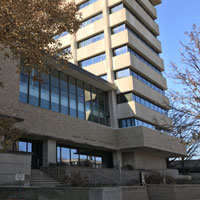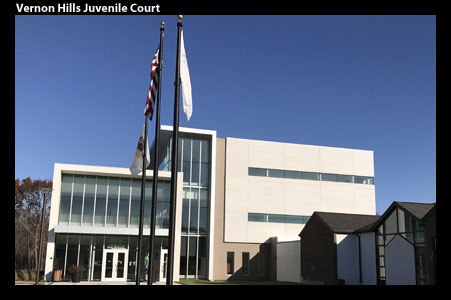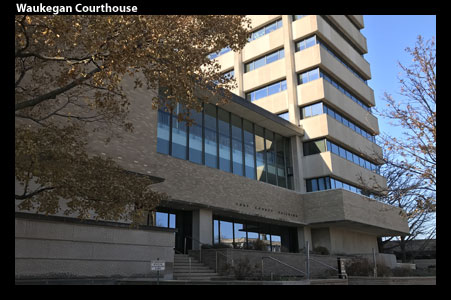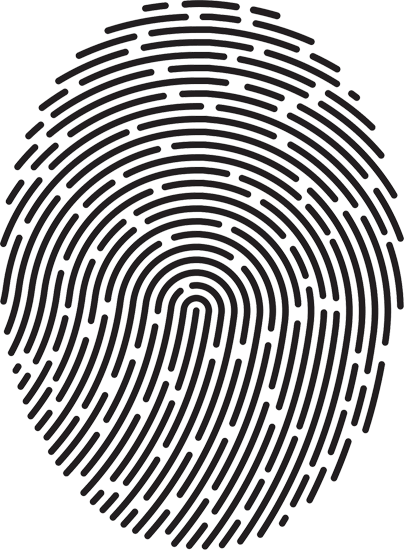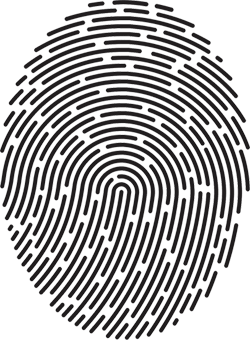Theft Defense Attorney Lake County, Illinois
Your Lake County, Illinois CRIMINAL THEFT case can be charged as a misdemeanor or felony offense. In a theft case, you can be charged with stealing someone else’s property and intending to keep it permanently. In a misdemeanor theft case, the court can send you to jail. In a felony theft case, the court can send you to prison. If you are found guilty of a theft offense, the court alternatively can place you on probation, order your to pay high fines and even make restitution. In some misdemeanor theft cases, the court can sentence you to court supervision, allowing you to avoid a conviction for the offense.
Those are some of the possible outcomes in your Lake County theft proceeding. The HoffmanLaw Office considers these to be possible outcomes, but not the only outcomes. If you choose the HoffmanLaw Office as your legal advocate in your Lake County theft case, we will analyze the charges against you from the ground up. Our defense of your criminal theft case builds on the presumption of innocence. You are presumed innocent of the charges against you. We never lose sight of that basic Constitutional protection. In defending your theft case, we look for weaknesses in the evidence against you and constantly pursue the best possible outcome of your charges. We will take our responsibility to you, if you become our client, very seriously. We are committed to working hard to build a powerful global strategy to achieve not just a beneficial, but a powerful resolution of your case.
 HoffmanLaw
HoffmanLaw HoffmanLaw
HoffmanLaw(847) 587-5000
 HoffmanLaw
HoffmanLawImplementing Powerful and Effective Strategies to Defend You Against Theft Charges in Lake County Criminal Court
Implementing Powerful and Effective Strategies to Defend You Against Theft Charges in Lake County Criminal Court
Lake County Illinois Criminal Theft Lawyer
Lake County Illinois Criminal Theft Lawyer
The charge of THEFT most often alleges that you obtained or exerted unauthorized control over property of another person with the intent to deprive that person permanently of the use or benefit of the property. See, 720 ICS 5/16-1(a)(1)(A). Your theft charge can range from a class A misdemeanor all the way up to a class X felony offense. Theft charges increase in severity based on the value of the property you allegedly took. Other factors, such as where and how you allegedly took the property also can function to increase the severity of the offense.
Basic Levels of Theft Charges
Basic Levels of Theft Charges

Class A Misdemeanor
Theft of property exceeding $500 in value. Up to a $2,500 fine and 364 days in jail.
Class 3 Felony
Theft of property exceeding $500 and not exceeding $10,000 in value. Possible 2-5 years in prison, up to $25,000 fine.
Class 2 Felony
Theft of property exceeding $10,000 and not exceeding $100,000 in value. Possible 3-7 years in prison, up to $25,000 fine.
Class 1 Felony
Theft of property exceeding $100,000 and not exceeding $500,000 in value. Possible 4-15 years in prison, up to $25,000 fine.
Class 1 Felony
Theft of property exceeding $500,000 and not exceeding $1,000,000 in value. Mandatory 4-15 years in prison.
Class X Felony
Theft of property exceeding $1,000,000 in value. Mandatory 6-30 years in prison.
Court Supervision in Misdemeanor Theft Cases
Court Supervision in Misdemeanor Theft Cases
Your Lake County criminal theft charge can create a permanent criminal record. If you are charged with misdemeanor theft, you may be eligible for a disposition of court supervision. Court supervision does not lead to a conviction for the offense. If otherwise you have a clean criminal record, in most cases supervision allows the expungement of the record of your arrest. Court supervision also may be available as a sentencing option in an ordinance-level Lake County theft case.
As a general rule, court supervision is not allowed for a felony theft charge. This means that if you plead guilty to or are found guilty of a felony theft charge, you will be convicted of the offense. A conviction for felony theft will lead to a felony conviction being added permanently to your record. A felony conviction also could lead to high fines, jail time, and possibly even a prison sentence.
HoffmanLaw is Prepared to Take Your Theft Case to Trial
HoffmanLaw is Prepared to Take Your Theft Case to Trial
Whether you are charged with misdemeanor or felony theft, the HoffmanLaw Office has the experience necessary to powerfully defend your case. If you have an upcoming court date in your case, it is important to remember that you are presumed innocent of the charges against you. As can be seen here, there are a number of elements of the offense of theft the prosecution is required to prove beyond a reasonable doubt. The prosecution must prove you “exerted unauthorized control” “over property” “of another person” and that you “had the intent to deprive that person” “permanently” “of the use or benefit of the property.” If, especially because of your defense lawyer’s work in your case, the prosecution fails to prove any one of these necessary elements of the offense of theft, then you should be found not guilty.
The HoffmanLaw Office has almost two decades of experience in Lake County, Illinois criminal court. We have many years of experience with theft and related charges. We understand the issues that arise in Lake County theft prosecutions and will fight for a positive resolution of the charges against you.
Whether you are charged with misdemeanor or felony theft, the HoffmanLaw Office has the experience necessary to powerfully defend your case.
~Attorney Matt Hoffman, the HoffmanLaw Office
 HoffmanLaw
HoffmanLaw(847) 587-5000
What is Theft?
What is Theft?
Knowingly Obtaining Unauthorized Control Over Property of the Owner
While Intending to Deprive the Owner Permanently
Of the Use or Benefit of the Property
Why Choose HoffmanLaw to Defend Your Lake County Illinois Criminal Theft Case?
Why Choose HoffmanLaw to Defend Your Lake County Illinois Criminal Theft Case?

Analysis.
The HoffmanLaw Office always is focused on the presumption of innocence. Building on this presumption, the HoffmanLaw Office performs a systematic and searching ANALYSIS of the facts alleged in your case. This intensive analysis exposes weakness in the prosecution's evidence and develops powerful defense arguments and strategies.

Preparation.
The HoffmanLaw Office strives to know completely the facts and law of your case. In criminal court, good results do not often emerge by chance. They come through intense PREPARATION that lays the groundwork for success. When you select the HoffmanLaw Office as your legal advocate, you team yourself with a philosophy of extreme preparation.

Results.
The HoffmanLaw Office views every time it appears in court with you as an opportunity to achieve RESULTS. Whether it is negotiating during a pretrial conference, cross-examining a witness, or delivering a closing argument at trial, the HoffmanLaw Office strives to be your best advocate at all times.
 HoffmanLaw
HoffmanLawDefending all Types of Lake County Criminal Theft Charges
Defending all Types of Lake County Criminal Theft Charges
Theft can be charged in a number of additional ways. Theft can be charged to allege you obtained control over property by deception, or by threat, or that you obtained control over stolen property you knew to have been stolen. Instead of charging you with intending to deprive the owner permanently of the use or benefit of the property, your theft charge can allege you knowingly concealed or abandoned the property in a such a way as to deprive the owner permanently of its use or benefit.
Theft “from the person” of another carries greater penalties than general theft. So does the theft of property in a school or place of worship. Theft by deception of property valued at $5,000 or more from a person 60 years of age or older carries an enhanced penalty, as do certain other specifically-described types of theft by deception.
There is even a felony charge of theft called THEFT (ENHANCED). Theft (enhanced) punishes the theft of property not from the person and not exceeding $500 as a class 4 felony. See, 720 ILCS 5/16-1(b)(2). A theft at this value normally would be punished as a class A misdemeanor. However, in a theft (enhanced) case, this level of theft becomes a class 4 felony if you have a prior conviction for any type of theft or for certain other enumerated offenses. Your prior conviction enhances the penalty in your case.
HoffmanLaw Builds Solid and Effective Defenses to Theft Charges
HoffmanLaw Builds Solid and Effective Defenses to Theft Charges
The HoffmanLaw Office defends clients against all different types of theft charges in the Lake County criminal courts. If you are charged with theft by deception, in some cases you are facing more serious potential penalties than in a standard theft case.
In your theft by deception case, the prosecution will be required to prove that you acted deceptively in committing the offense. Even though the allegation of deception may make the charge more serious, from another perspective that allegation makes the offense more difficult for the prosecution to prove. If the prosecution were to prove every other element of the alleged offense, but failed to prove that you acted deceptively, then you should be found not guilty of the charge.
The HoffmanLaw Office has many years of experience cross-examining prosecution witnesses in Lake County criminal court. However you are charged in your theft case, we are prepared to take a close look at the evidence against you and to build a solid and effective defense.
However you are charged in your theft case, we are prepared to take a close look at the evidence against you and to build a solid and effective defense.
~Attorney Matt Hoffman, the HoffmanLaw Office
 HoffmanLaw
HoffmanLawDefending Serious Criminal Theft Charges in Lake County Illinois Criminal Court
We are Here to Help
(847) 587-5000

Defending Juveniles Against Criminal Theft Charges at Juvenile Court in Vernon Hills
Defending Juveniles Against Criminal Theft Charges at Court in Vernon Hills
The HoffmanLaw Office also defends criminal theft and related charges at the Lake County, Illinois juvenile courthouse in Vernon Hills.  Juvenile court prosecutions are governed by penalties, rules and procedures that often differ greatly from those that apply in adult court, including those discussed on this page.
Juvenile court prosecutions are governed by penalties, rules and procedures that often differ greatly from those that apply in adult court, including those discussed on this page.
Attorney Matt Hoffman of the HoffmanLaw Office has many years' experience with Lake County juvenile delinquency proceedings and "Petitions for Adjudication of Wardship." He is a former Lake County Assistant State's Attorney who used to prosecute juvenile cases in Lake County juvenile court. If your child is charged with theft or with any other related offense in Lake County juvenile court, the HoffmanLaw Office has the specific experience necessary to work toward an intelligent and effective resolution of the case.
Matt Hoffman is a former recipient of the Lake County, Illinois Juvenile Justice Award.











